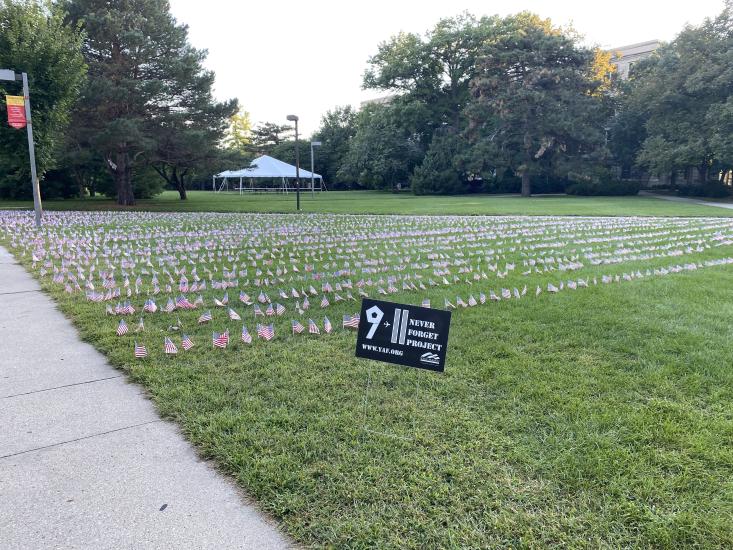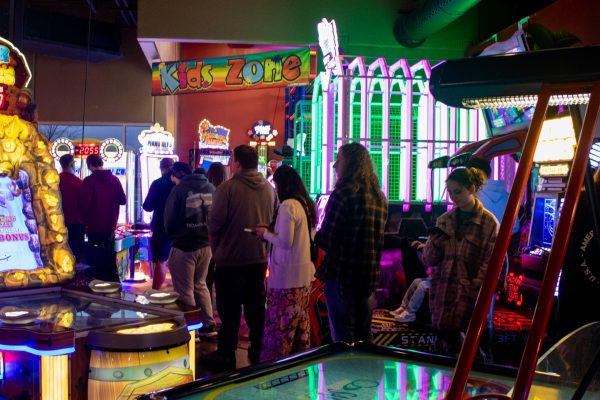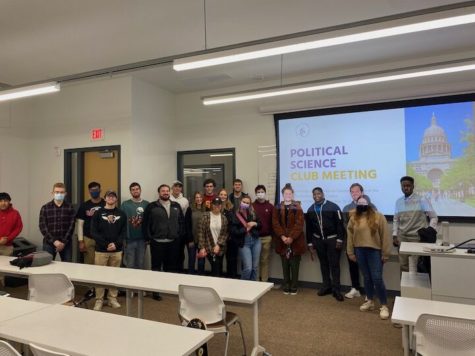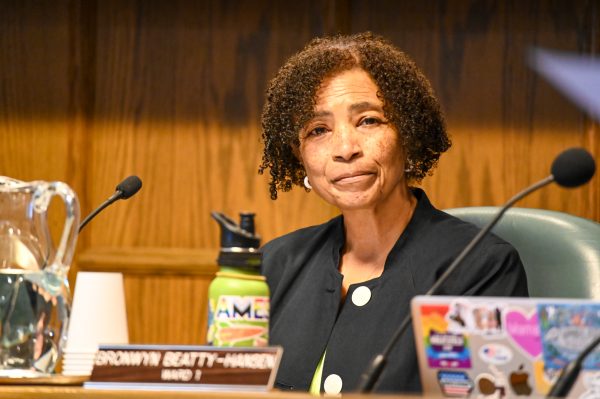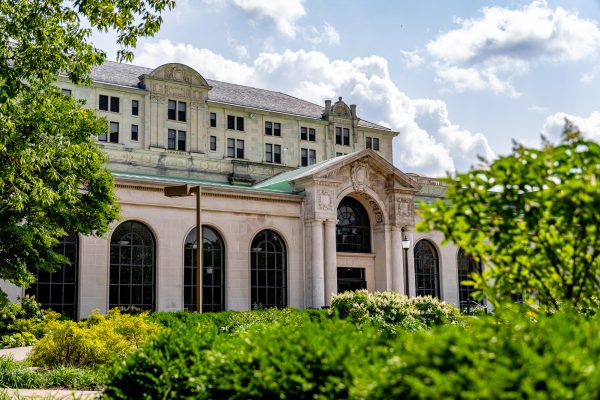GenZ reflecting on the effect of 9/11
A total of 2,977 flags were set up by student organization Young Americans for Freedom in remembrance of 9/11.
A total of 2,977 people were killed in the largest act of terror against the United States since Pearl Harbor, but a majority of Iowa State’s students are too young to recall the event from memory.
Jose Dizon, a junior majoring in computer engineering, was only a few weeks old at the time of 9/11.
“I know there was a lot of racial discourse when it happened, and I’m sure that has lasting effects for the different kinds of races that had to take the brunt of the blame,” Dizon said. “Personally, as an Asian guy, I don’t experience it all that often, but I do still see remnants of that still around.”
In 2001, there were 554 victims of bias-motivated anti-Islamic hate crimes. In 2018, the number was 236, and in 2019, the number was 227. A victim may refer to an individual, business/financial institution, government entity, religious organization or society/public as a whole, according to the FBI.
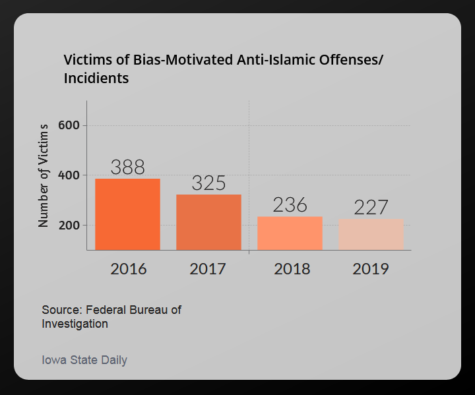
(Biong Biong)
Dizon said he does not know much of the details around 9/11 or the War on Terrorism, but he feels as though the War on Terrorism was not good for any of the parties involved.
“All it did was bad; there was nothing good that really came out of it,” Dizon said. “Sure, America was united after it, but not really I don’t think.”
Advaith Thimmancherla, a freshman majoring in computer engineering, had not been born when 9/11 happened. He said his first thought associated with 9/11 is the plane striking the northern tower–the first tower to be struck.
Thimmancherla said despite not learning about 9/11 in school when he was a child, he was still familiar with the terror attack.
“I’m from India, and when I was younger I used to live there,” Thimmancherla said. “I came to the U.S. in 2015, so it wasn’t really a topic that we talked about back there. Although, my parents have told me about their experience because they were alive during it and they remember seeing it in the news because it was a big thing back then–it was an event that shook the whole world.”
Thimmancherla said he does not have many feelings in regard to 9/11 aside from empathic feelings for victims of acts of terror.
“I’m South-Asian because I’m from India, and I know people who look like me have been impacted by the event,” Thimmancherla said. “I’m not Muslim; I’m Hindu, but I know a lot of people who are Muslim have faced a lot of discrimination or hate because of that event.”
Thimmancherla said he understands to some extent the anti-Islamic prejudice held by some patriots in regard to 9/11, but he emphasized most who practice Islam have no connection whatsoever to terrorist groups.
“People gotta be mindful that just because someone identifies with a religion does not mean that they’re a part of a terrorist group,” Thimmancherla said.
The fall of the towers saw the introduction of the Uniting and Strengthening America By Providing Appropriate Tools Required to Intercept and Obstruct Terrorism (the USA PATRIOTS Act), which, among other things, allowed law enforcement to engage in surveillance and wiretapping for investigations regarding terrorism, removed the statute of limitations for terror-related crimes and increased penalties for terror-related crimes.
Lauren Hayman, a sophomore majoring in kinesiology, was born in 2003 and said 9/11 has not impacted her life a great deal.
“Obviously it doesn’t impact me as much right now, but I remember watching videos in class, and [every September 11] that’s all we would do,” Hayman said.
Hayman said she travels a lot with her family and they run into a fair amount of hassle with the Transportation Security Administration, established Nov. 2001, in response to the terror attacks.
“TSA’s always the worst part [of traveling],” Hayman said. “We always have to be there three hours early just to get through TSA and stuff.”
Madison Congdon, a senior majoring in kinesiology, was alive when 9/11 had happened but was too young to remember any of the details. Congdon said 9/11 has not had much impact on her life either.
“I mean, sometimes I have a little bit of fear on planes, but I don’t really think I’m going to crash into a building or anything like that,” Congdon said, “But more so safety, but I feel like that’s safety anywhere, not even just planes.”
Your donation will support the student journalists of the Iowa State Daily. Your contribution will allow us to purchase equipment, send our student journalists to conferences and off-set their cost of living so they can continue to do best-in-the-nation work at the Iowa State Daily.


